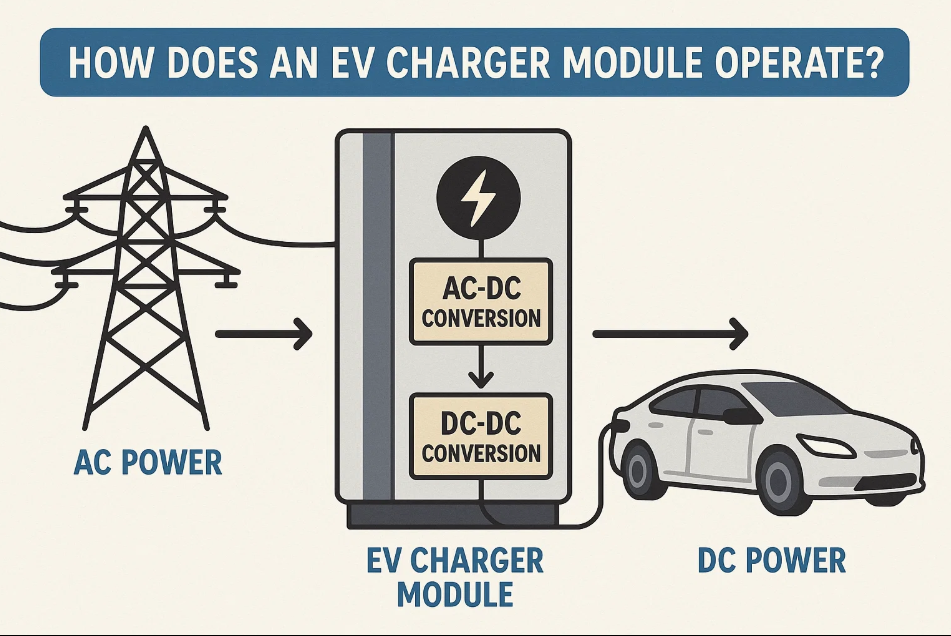2025-07-24
UUGreenPower
0
It's becoming more and more crucial to comprehend the technology underlying electric vehicle (EV) charging systems as their popularity rises. Central to this technology is the EV charger module, a critical component that enables the efficient charging of electric vehicles. In this article, we will delve into how these modules operate, highlighting the advantages of liquid cooling charging modules and IP65 charging modules.

Fundamental Functionality of EV Charger Modules
At its core, an EV charger module converts electricity from the power supply into a form suitable for charging the vehicle’s battery. The majority of modern EV chargers utilize direct current (DC) for faster and more efficient energy transfer compared to alternating current (AC). This conversion process is vital as it directly impacts both charging speed and overall efficiency.
The EV charger module is equipped with sophisticated electronics that manage the flow of electricity. These components monitor critical parameters such as voltage and current to ensure safe and effective charging. By regulating these factors, the charger module helps prevent overcharging, thereby extending the life of the vehicle's battery and optimizing performance.
The Role of Liquid Cooling Technology
One notable advancement in EV charger technology is the liquid cooling charging module. Traditional air-cooled systems can struggle to effectively dissipate heat, especially during high-power charging sessions. In contrast, liquid cooling modules excel at maintaining optimal temperatures, which is crucial when charging EVs quickly.
Liquid cooling technology enhances the heat dissipation efficiency of the charger module. By effectively managing heat, this technology ensures that the charging module can operate continuously without overheating, leading to improved performance and reliability. As a result, operators can provide efficient charging services without interruptions due to thermal constraints.
Additionally, the design of liquid cooling charging modules contributes to less wear and tear compared to air-cooled alternatives. This durability translates to lower maintenance requirements and a longer operational lifespan, making them an attractive choice for charging station operators.
Ensuring Durability with IP65 Charging Modules
Another essential aspect of EV charger modules is their ability to withstand environmental factors, exemplified by the IP65 charging module. The IP65 rating signifies that the module is completely dust-tight and resistant to water ingress, allowing it to function effectively in various outdoor conditions.
This robustness is particularly valuable for charging stations located in diverse environments. An IP65 charging module can maintain reliable performance regardless of weather conditions, which reduces the risk of failure due to external factors. Thus, operators benefit from enhanced uptime and increased customer satisfaction.
Moreover, the durability of IP65-rated modules means that they require less frequent repairs or replacements, leading to a lower total cost of ownership for charging station operators.
Conclusion
Ultimately, the critical role of EV charger modules in enabling seamless electric mobility is undeniable. Technological leaps, particularly liquid cooling systems and IP65-rated environmental protection, are key to achieving superior efficiency and unwavering reliability. At UUGreenPower, we innovates these advancements. Our UR100040-LQ(EU) Liquid Cooling Charging Module, incorporating world-leading power supply technology, exemplifies our commitment. Through relentless innovation, we deliver solutions that not only meet but anticipate the needs of the dynamic EV market, ensuring an optimized charging experience.
What Makes an EV Charger Module Reliable?
2025-07-23 NextWhy Are EV Charger Modules Important?
2025-07-25